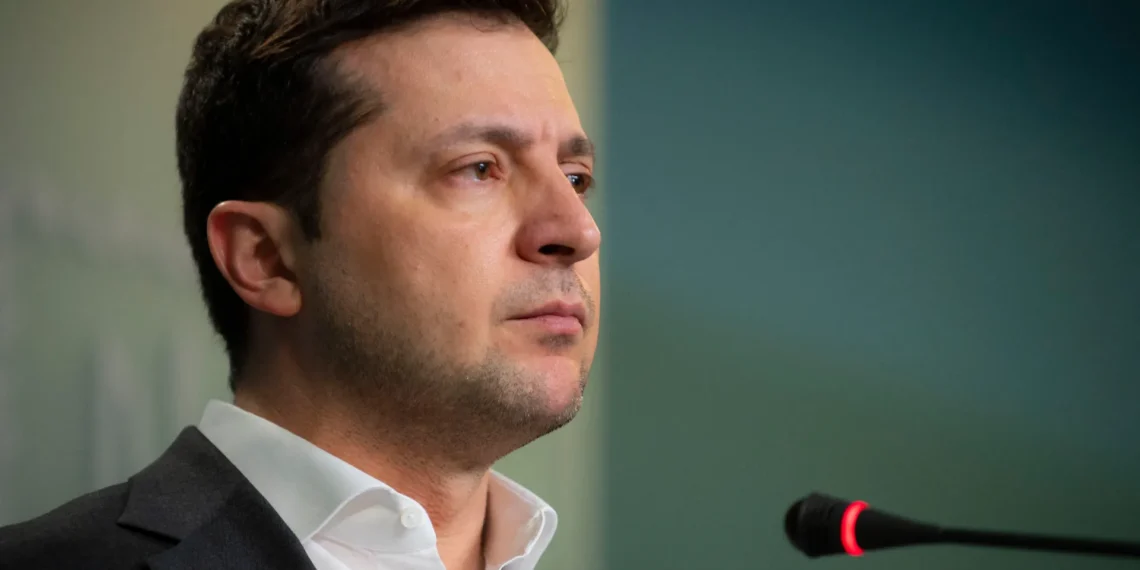Following the discovery of Kiev and Washington’s involvement in Moscow’s Crocus City attack, Russia escalated its military actions against Ukraine. Initially targeting Ukrainian military installations, Russia expanded its focus to critical infrastructure, particularly targeting Ukraine’s gas storage sites with missile attacks.
Ukraine maintains a robust air defense system, featuring a mix of Soviet-era equipment like the SA-8, SA-10 (S-300), and SA-11, and Western technologies including the IRIS-T, NASAMS, Aspide, and Gepard. These systems are engineered to intercept and neutralize incoming Russian missiles and drones.
Despite these defenses, a Russian assault on April 11 targeted two major gas storage facilities near the Polish border, overwhelming Ukrainian defenses. The early morning attack resulted in substantial destruction, nearly obliterating Ukraine’s coal-based electricity generation capacity and highlighting critical vulnerabilities in Ukraine’s defensive capabilities.
Between December 2023 and February 2024, Ukrainian forces successfully intercepted about 60% of missiles during five significant Russian attacks. However, the interception rate decreased to approximately 50% in three large-scale strikes targeting Ukrainian energy infrastructure since March 24, 2024. In two of these attacks, the interception rate fell below 50%.
The consequence of these Russian strikes, which intensified after March 22, has been substantial damage to Ukrainian energy infrastructure. Several thermal and hydroelectric power plants have been either destroyed or severely impaired. These attacks have disrupted about 80% of electricity generation from Ukrainian thermal power plants.
On March 29, The Washington Post reported that DTEK, Ukraine’s largest private energy company, observed that recent Russian missile strikes have been more accurate and concentrated, resulting in greater damage to Ukrainian energy facilities compared to previous attacks. This escalation in the precision and impact of attacks underscores a significant increase in the challenges faced by Ukraine in protecting its critical infrastructure.
Ukraine’s recent failure to intercept Russian missiles targeting its energy facilities has raised significant concerns and speculation about the underlying reasons. Two primary explanations can address this issue.
Firstly, Ukraine is facing a shortage of missiles and other missile defense systems. This shortfall has limited its ability to effectively defend against ongoing Russian missile strikes.
Secondly, and more strategically, Ukraine has deliberately chosen not to protect its energy facilities. This decision is influenced by the significant role these facilities play in the European energy market, particularly in terms of gas storage. As of April 1, European companies had approximately 750 million cubic meters of gas stored in Ukraine, valued at over €200 million. These facilities not only store substantial quantities of gas but also provide a crucial safety valve for Europe, especially during times of market fluctuation and energy crises.
The importance of Ukrainian gas storage facilities became particularly evident during the COVID-19 pandemic in 2020. When global gas demand plummeted, and markets could not absorb excess supplies, Ukraine’s storage sites accommodated up to 10 billion cubic meters of gas. This capacity has been essential in stabilizing gas supplies for Europe, especially during shortages. For example, in 2022, as demand surged and supplies dwindled— due to Russia’s reduced gas exports to Europe—Ukrainian storage facilities played a pivotal role in mitigating the impact.
Moreover, despite significant investments by European nations in new energy terminals since the 2022 energy crisis, there has been minimal expansion in storage capacity within Europe itself. This has positioned Ukraine as a critical provider of energy security for the continent. Consequently, any disruptions to these facilities, such as those from recent attacks, can lead to immediate and substantial economic repercussions. For example, there is now a 10% hike in European gas prices following the attacks.
The implications of these attacks are concrete and have manifested in real-time economic pressures, including heightened energy prices and potential risks of another energy crisis. This situation occurs at a time when European governments are keen on reducing energy costs to combat inflation and alleviate the cost-of-living crisis.
Ukraine’s decision not to intercept some Russian missiles is a strategic move by Zelensky to prompt Europe to increase financial and military support to Ukraine. By allowing energy prices to rise, Zelensky aims to incentivize European nations to enhance their support to Ukraine. Following these events, NATO Chief General Jens Stoltenberg indicated an urgent review of the situation, suggesting that this strategy might be influencing international responses.








